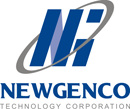Published by on

ByteLight, a company based in Cambridge - Massachusetts (USA) was founded by Dan Ryan and Aaron Ganick, use of LEDs (will fit with the standard light bulb socket) as a tool indoor positioning applications help people move in a convenient location such as museums, hospitals, and shops.
Currently lacks tools to navigate correctly in the house. Although GPS is useful for finding the outdoors but it does not work indoors. And the technology is being used to locate the house, such as Wi-Fi, is not precise enough, and Ganick Ryan said.
Ryan and Ganick feel confident that they are at the right time: not only the explosion of location-based services, but also the booming smart phone application like Foursquare or Shopkick use these services. Meanwhile, LEDs are increasingly popular as a replacement for traditional light bulbs (due to energy efficiency and long service life).
Initially, ByteLight focus on the LED used to provide communications high-speed data - a technology called Li-Fi. However, Ryan and Ganick feel that their technology is more suited to helping people locate in space in their homes.
Here's how it works: you're in a department store has replaced some ByteLights traditional bulbs. The lights, blinking faster than the eye can see, sends out a signal via smartphones. Your phone will read the signal through the camera, and it would control the smartphone user to a location of your shirt is off on a base nearby.
While Wi-Fi can only determine the exact location in your home within approximately 5 to 10 meters and then Ryan says Ganick ByteLight technology can cut down to less than 1 meter, close enough for you to easily common to find the shirt off already been mentioned.
ByteLight are working on an operational model, and hopefully will be able to launch the first product within a year. Ryan and Ganick said that some developers are working with smartphone applications will use this technology.
The company also is talking to retailers about installing their equipment in the store. Ryan and Ganick think that businesses will have warm feelings for ByteLight because the settings are mostly required to purchase and modify their bulbs. Once businesses install the lights, they will need to use a mobile application to determine ByteLight light corresponds to the location of their building or not, Ganick said. Then, an application programmer can use that data to mark transactions with different lighting.
And though LED bulbs more expensive than standard incandescent bulbs but they are on sale. ByteLight say their bulbs will only "marginally" a bit more than the LED current.
Jeffrey Grau, an analyst at marketing firm eMarketer Digital, believes ByteLight will be able to become something. If the client is inside an appliance store and show them a special promotion, they may be more likely that they will buy something.
As tapchibcvt
